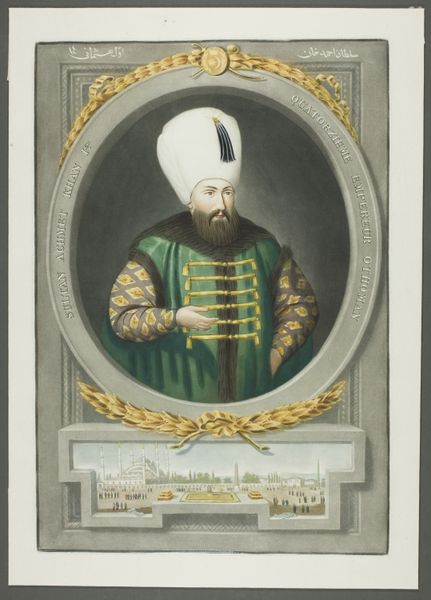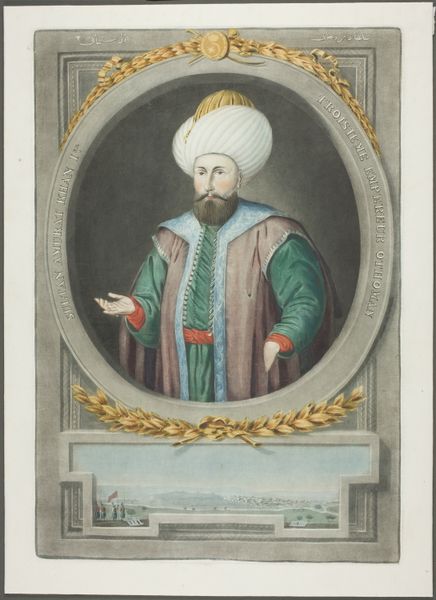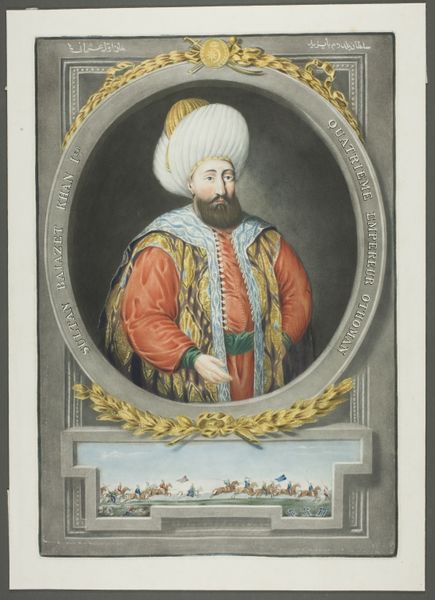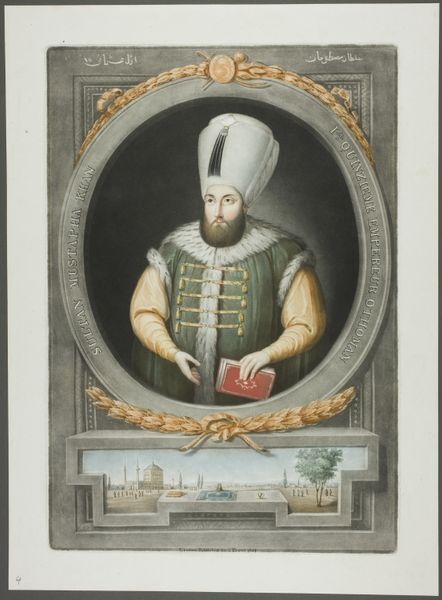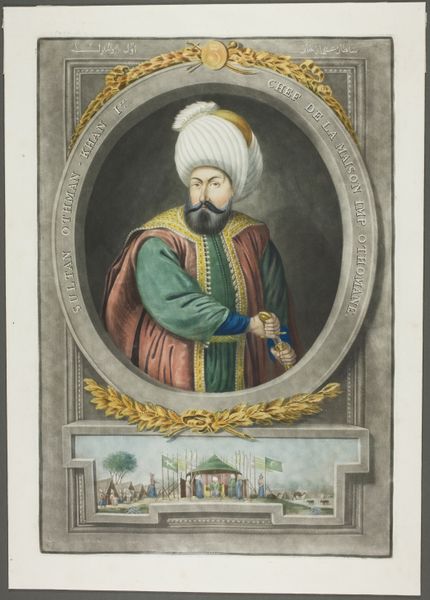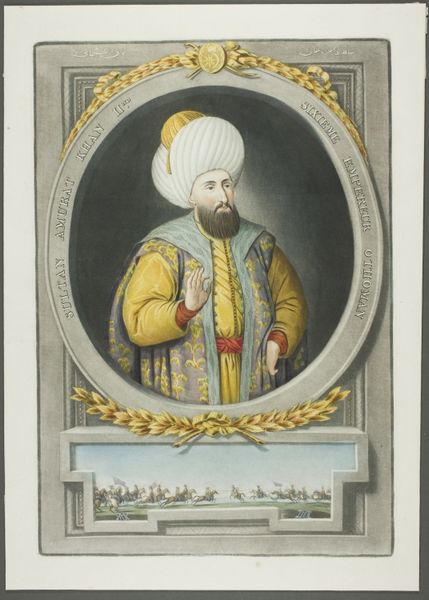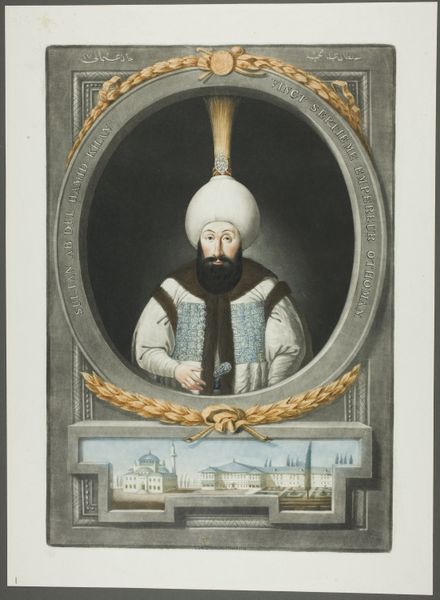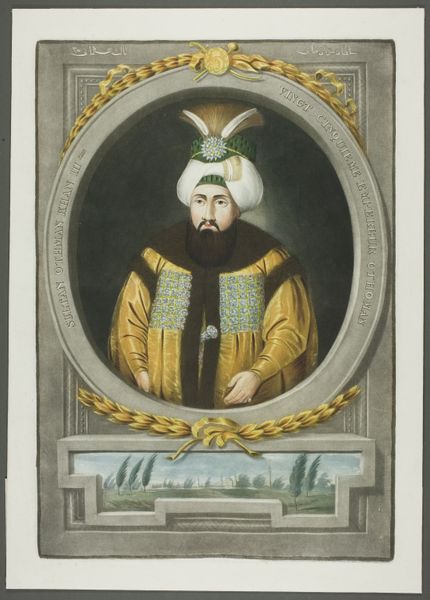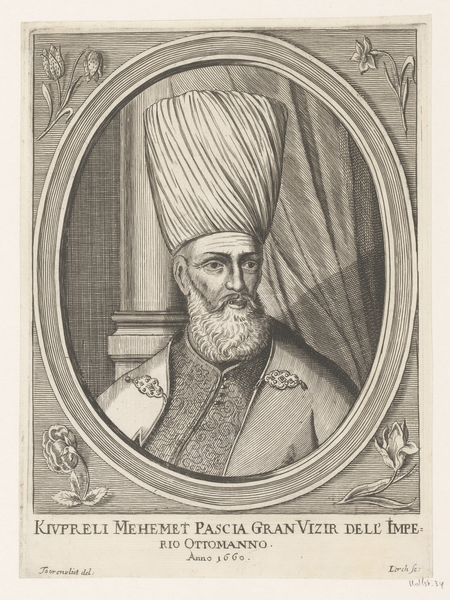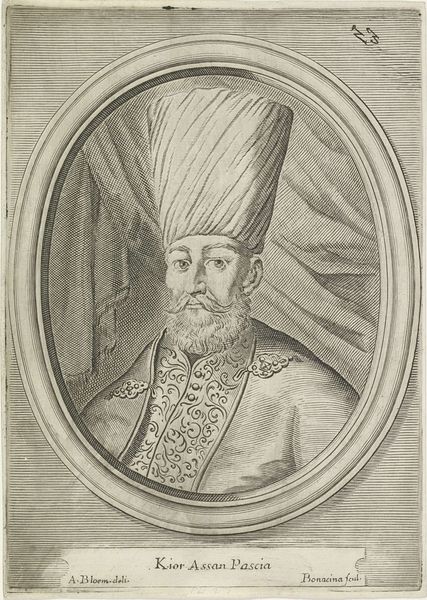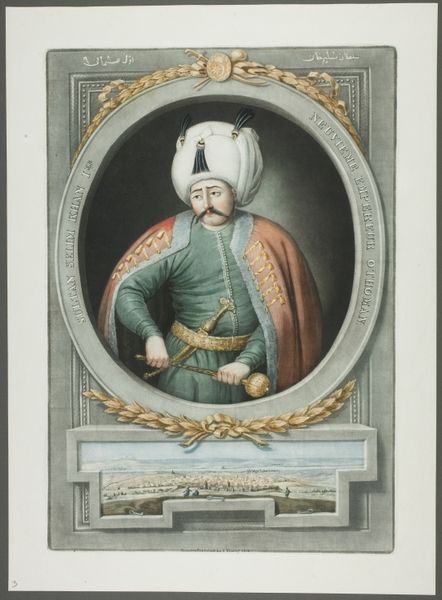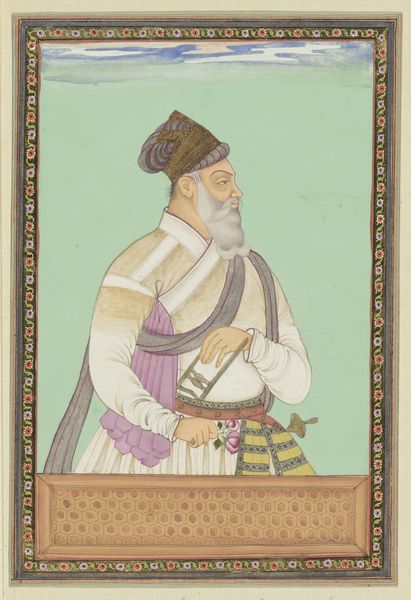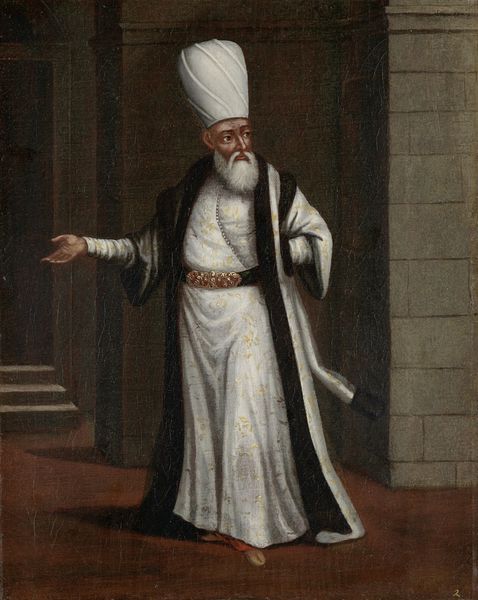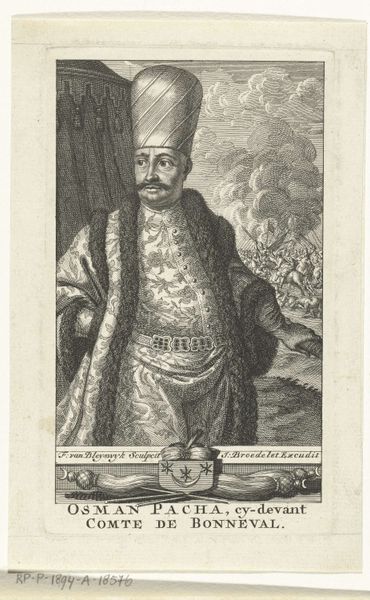
Soliman Kahn I, from Portraits of the Emperors of Turkey 1815
drawing, print, paper, watercolor
portrait
drawing
16_19th-century
paper
oil painting
watercolor
orientalism
islamic-art
watercolour illustration
history-painting
Dimensions: 375 × 253 mm
Copyright: Public Domain
Editor: This print, titled "Soliman Kahn I, from Portraits of the Emperors of Turkey," was created in 1815 by John Young, rendered in watercolor on paper. I’m struck by how meticulously detailed the portrait is, juxtaposed against the hazy crowd scene below. What can you tell me about the formal choices at play here? Curator: Certainly. Focus first on the framing. The portrait employs a complex layering of forms—oval nested within a rectangle—drawing attention to its self-referentiality. This structure insists on its artifice. The formal strategy of juxtaposing the individualized rendering of the portrait against a more impressionistic depiction of a crowd functions as a compositional element in its own right. How does the relationship between portrait and setting strike you? Editor: I see what you mean about the setting – it is there, but feels secondary. I notice how the figure dominates. Curator: Precisely. Note the limited palette—primarily muted greens, golds, and greys. These are harmonious colours, fostering a sense of dignified reserve appropriate for portraying imperial power. However, this is offset by that flash of illustrative color beneath, which seems almost detached from the upper scene. It becomes a purely structural method for creating dynamism and visual interest, as it balances out all of the detail above. Editor: That makes perfect sense! I’m now viewing it as less of a background scene and more like a way for the artist to disrupt the expected aesthetic. Curator: Indeed! The arrangement encourages us to analyze not just the subject but also the means by which the artist manipulates form, color and composition to create meaning. Now that you see this tension at play, what do you think about the artist's perspective or intention? Editor: Before, I assumed it was all about realism. But considering the form now, it seems less about depicting a person and place and more about experimenting with the relationship between the real and the representational. Thanks, that really broadened my understanding. Curator: My pleasure! Paying closer attention to these formal decisions yields considerable interpretative insight.
Comments
No comments
Be the first to comment and join the conversation on the ultimate creative platform.
